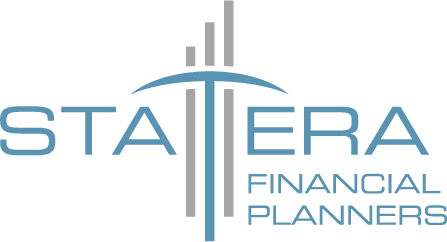Simple Steps To Manage Your Wealth

Introduction
Managing your wealth doesn't have to be complicated. With a few simple steps, you can take control of your finances and build a more secure future. Whether you're just starting out or looking to refine your existing strategy, effective wealth management can help you achieve your financial goals.
The key to successful wealth management lies in understanding your financial situation and making informed decisions. This involves setting clear financial goals, creating a realistic budget, investing wisely, and regularly reviewing your financial plan. Each of these steps plays a crucial role in helping you manage your money more effectively.
By breaking down the process into manageable tasks, you'll find it easier to stay on track and achieve your financial objectives. From defining what you want to accomplish financially to making smart investment choices, these practical steps can pave the way for a more secure and prosperous future. Let's explore how you can manage your wealth with confidence and ease.
Setting Clear Financial Goals
The first step in managing your wealth is setting clear financial goals. These goals act as a roadmap, guiding your decisions and helping you stay focused. Start by thinking about what you want to achieve financially. Do you want to buy a home, save for your children's education, or retire early? Writing down these goals makes them more real and gives you something to aim for.
When setting your goals, make sure they are Specific, Measurable, Achievable, Relevant, and Time-bound (SMART). For example, instead of saying "I want to save money," specify how much you want to save and by when. "I want to save $10,000 in the next two years" is a clear and actionable goal. This clarity helps you track your progress and make adjustments as needed.
It's also important to prioritize your goals. Decide which ones are the most important and focus on those first. Breaking down big goals into smaller, manageable tasks can make them feel less overwhelming. By setting and prioritizing clear financial goals, you set the foundation for effective wealth management.
Creating and Sticking to a Budget
A budget is a crucial tool in wealth management. It helps you understand where your money is going and ensures you're spending within your means. Creating a budget is simple. Start by listing all your sources of income. This could include your salary, side jobs, or any other money you receive regularly.
Next, list your expenses. Divide them into two categories: fixed expenses (like rent or mortgage payments, utilities, and insurance) and variable expenses (like groceries, entertainment, and dining out). Make sure to account for both types so you get a full picture of your spending.
Once you have your income and expenses listed, compare the two. Ideally, you should be earning more than you're spending. If not, look for areas where you can cut back. Maybe you can reduce dining out or find cheaper alternatives for some of your variable expenses.
Sticking to a budget requires discipline. Track your spending regularly and compare it against your budget. There are many apps and tools available to help you do this easily. If you find you're overspending in certain categories, adjust your budget accordingly. Remember, a budget is a flexible tool that should change as your financial situation changes. By creating and sticking to a budget, you can better manage your wealth and achieve your financial goals.
Making Smart Investments
Investing is a key part of wealth management. It helps your money grow over time and can provide financial security in the future. The first step to smart investing is understanding your risk tolerance. Are you comfortable with high-risk investments that might bring high returns, or do you prefer safer, low-risk options? Knowing your risk tolerance helps you choose the right investments.
Diversification is another important strategy. Don't put all your money into one investment. Spread it out across different asset types like stocks, bonds, and mutual funds. This reduces risk because if one investment performs poorly, others might do well. Think of it as not putting all your eggs in one basket.
Keep an eye on your investments regularly. Markets fluctuate, and it's important to stay informed about how your investments are doing. This helps you make necessary adjustments to keep your portfolio balanced. If you're unsure about where to start, consider consulting with a financial planner. They can offer advice tailored to your financial goals and help you make informed investment decisions.
Regularly Reviewing Your Financial Plan
Regularly reviewing your financial plan ensures you stay on track with your goals. Life changes such as a new job, a growing family, or buying a home can affect your financial situation. Reviewing your plan helps you adapt to these changes and make necessary adjustments.
Set a routine to review your financial plan at least once a year. During this review, look at your financial goals, income, expenses, and investments. Are you close to reaching your goals? Do you need to adjust your budget or change your investment strategy? Answering these questions helps you stay aligned with your financial objectives.
Updating your financial plan involves more than just looking at numbers. Consider your personal and family goals as well. Are there new short-term or long-term goals you need to include? This holistic approach ensures that all aspects of your life are taken into account in your financial planning.
Conclusion
Managing your wealth involves more than just saving money. It's about setting clear goals, creating a workable budget, making smart investments, and regularly reviewing your financial plan. By following these steps, you can achieve financial stability and security for you and your family.
Remember, wealth management is an ongoing process. Regular reviews and adjustments ensure that your financial plan remains aligned with your goals and life changes. This proactive approach to managing your wealth helps safeguard your financial future and allows you to live confidently.
Ready to take control of your financial future? Contact Statera Financial Planners in Edmonton. Our team is here to help you create and manage a comprehensive financial plan tailored to your unique needs. Reach out to our certified financial planner in Edmonton today and start your journey toward financial security and peace of mind.

As financial planners, we do not provide specific tax and legal advice. You should always consult your accountant and/or lawyer where necessary. Because of the many ways a strategy may be impacted when segmented, we prefer to communicate collectively with your external professionals to ensure that all recommendations and action plans are in the overall best interest of you, with your professionals working with common goals in mind.
You are never obligated to act on our recommendations of products, services, or advice.
